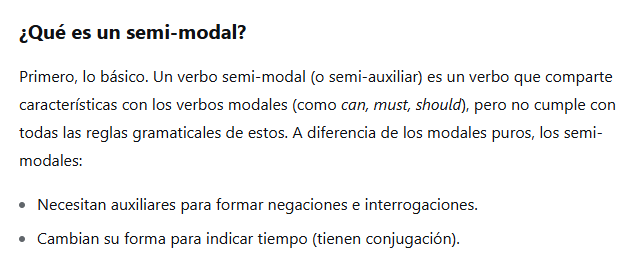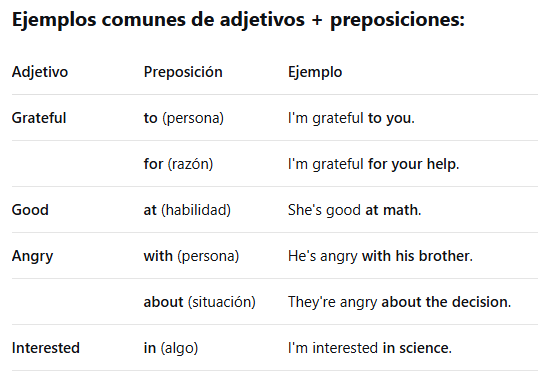Why do you say it's not a word? Just because it's not in a dictionary?
- Dec 2025
-
english.stackexchange.com english.stackexchange.com
-
- Nov 2025
-
-
their multilingual texts and diverse perspectives were viewed as meaningful contributions to the "fanon" or collective body of fan knowledge (Black, 2005). As ELLs, this acceptance was important to focal participants' literacy and language socialization for several reasons
-
-
go.gale.com go.gale.com
-
As a form, fanfictions make intertextuality visible because they rely on readers' ability to see relationships between the fan-writer's stories and the original media sources.
What many people who brush fan fiction off as irrelevant tend to ignore is the vast understanding of a pre-existing setting needed to contextualize the writings made, as well as the effort and organization required to properly build off of such settings.
-
What they were less likely to say explicitly, but what seemed clear to us, was that fanfiction writing also helped to develop and solidify relationships with various friends, online or otherwise.
Writing, for many, tends to be most rewarding when you can share it with someone. To show others your ability to express thoughts, emotions, and ideas through your use of language is helpful in gaining confidence and experience, and this is even more true when you receive direct criticism as well.
-
Writing was seen as a way to have fun, exercise one's imagination, and avoid boredom.
-
-
go.gale.com go.gale.com
-
English-language learners (ELLs) who affiliated around a common interest in fanfiction--a term for stories that fans of an original work (e.g., Harry Potter) write by using the settings, characters, and plot from the original to imagine and create different situations that sometimes include curious mixes across genres and media.
-
-
blog.dragansr.com blog.dragansr.com
-
"state" is specific, where value can be one of pre-defined known distinct values, with conditions, like in context of "state machine", i.e. state of shopping cart: empty, open, closed etc. "status" is broader and is a result of an action or activity, where it could indicate an error or also include resulting state, i.e. status of adding item to shopping cart error for insufficient funds.
-
-
medium.com medium.com
-
- Status: Used for reporting the outcome, result, or condition of an object that’s relevant for external communication. — Examples: `HttpStatus`, `OrderStatus`, `ConnectionStatus`, `ServiceStatus`. - State: Used to track the internal condition of an object or entity, especially when it’s part of a workflow or lifecycle. — Examples: `Thread.State`, `AppState`, `ProcessState`, `DocumentState`.
-
-
softwareengineering.stackexchange.com softwareengineering.stackexchange.com
-
"Status" tends to be the opposite. It tends to be used for things that happen without the programmer's input - and often that the programmer cannot change. It also tends to be used for for negative statuses. "The status of your connection is (checking...) disconnected."
interesting take on it
-
"State" makes me think of "state machine", and I typically use it to refer to something internal / technical, like, "open", "parsing header", "negotiating formats", "reading text", "reading video", etc. Something a fellow programmer might care about, but not intended (much) for the end user. Maybe if they ask for more details on an error, but not the first thing they see. "Status" is less techie and more for an end user, e.g. "reading", "error 404", "success 200".
-
-
-
State describes the condition in which a person, or a thing is, in general. A “State” may change, of course, but It relates to a position that is not easy to change. A subject’s “State” at a certain time reflects what it is and how it exists.
status could also refer to that
-
-
-
State is used to describe a stage in a process (e.g. pending/dispatched).Status is used to describe an outcome of an operation (e.g. success/fail).In engineering, “state” emphasizes a stage in a process, while “status” focuses on the outcome. This is somewhat similar to the previous definitions, but in this case, the “state” refers to different stages within an event, and these stages can coexist but occur under different conditions. The outcome, on the other hand, is simply success or failure, and these statuses cannot coexist.
Not sure I agree (at least fully), but they may have a slight point... an observation that I hadn't noticed before
-
- Oct 2025
-
softwareengineering.stackexchange.com softwareengineering.stackexchange.com
-
ell.stackexchange.com ell.stackexchange.com
-
In your example you would simply say approved. The addition of the prefix pre has no meaning for words such as approve. It implies something that is done before approval. Therefore, pre-approved means not yet approved. You do find meaningless phrases like pre-approved and pre-booked used by marketers and advertisers but they cannot be recommended in good English.
While technically not correct according to dictionary definition, this does at least raise good points about ambiguity/inconsistency in English:
If it did not already have a pre-established meaning, then the pre- prefix here certainly could make the word mean "prior to approval", could it not? It's only the precedent set by those before us that makes it mean the other thing (that the dictionary says it actually means).
-
-
-
 * Sighting = avistamiento.
* Guest = huésped, invitado.
* According = de acuerdo.
* Request = solicitud.
* Sighting = avistamiento.
* Guest = huésped, invitado.
* According = de acuerdo.
* Request = solicitud. -
 * Lead = conducir/dirigir.
* To = hasta.
* Lead = conducir/dirigir.
* To = hasta. -
 * **was it fed that? ** = fue alimentado con eso?
* **was it fed that? ** = fue alimentado con eso? -
 * Flesh = carne.
* chunk = pedazo.
* Certain = cierto.
* to = hasta.
* Flesh = carne.
* chunk = pedazo.
* Certain = cierto.
* to = hasta. -
 * Bits = trozos, pedazos.
* Burn off = quemar.
* Enhance = mejora.
* Regardless = a pesar, independiente de.
* Attach = adjuntar.
* Bits = trozos, pedazos.
* Burn off = quemar.
* Enhance = mejora.
* Regardless = a pesar, independiente de.
* Attach = adjuntar. -
 * Follow = entender.
* Follow = entender. -
 * Soar = elevar.
* Amount = cantidad.
* Strengthened = fortificadas , fortalecidas.
* coverage = cobertura, reportaje.
* Medios = medios, noticias
* So on = y Asi sucesivamente, y además.
* Soar = elevar.
* Amount = cantidad.
* Strengthened = fortificadas , fortalecidas.
* coverage = cobertura, reportaje.
* Medios = medios, noticias
* So on = y Asi sucesivamente, y además. -
 * Fell off = desaparecer.
* Fell off = desaparecer. -
 * Get = traer / conseguir
* Get = traer / conseguir -
 * Trouble = problema.
* Trouble = problema. -
 * Heavily = ampliamente.
* covering = cubriendo.
* Rise= aumentando
* Heavily = ampliamente.
* covering = cubriendo.
* Rise= aumentando -
 * That = así.
* Whole = todo
* Counter Measure = contramedida.
* That = así.
* Whole = todo
* Counter Measure = contramedida.
-
-
-
 * Pull + subject + of => pull it off = lograrlo
* Pull + subject + of => pull it off = lograrlo -
 * How long = que tan largo.
* Warm = cálido
* How long = que tan largo.
* Warm = cálido -
 * Naughty = Travieso
* The more = cuanto mas.
* Partner = pareja.
* Naughty = Travieso
* The more = cuanto mas.
* Partner = pareja. -
 * Turned out = resultar.
* Big deal = gran cosa.
* Turned out = resultar.
* Big deal = gran cosa. -
 * Go after = ir tras.
* realize = darme cuenta.
* Happier = mas feliz.
* chase = viaje / perseguir.
* Crap = mierda / estupidez
* Go after = ir tras.
* realize = darme cuenta.
* Happier = mas feliz.
* chase = viaje / perseguir.
* Crap = mierda / estupidez -
 * Got ahold od = conseguir / conseguir algo con esfuerzo.
* Got ahold od = conseguir / conseguir algo con esfuerzo.- actually = realmente.
- had my hands on it = tuve mis manos sobre eso.
- Way = mucho, bastante, muy.
- Less = menos.
- Life changing = transformador/ que cambia la vida.
-
 * Even though = a pesar de.
* Something = algo.
* Even though = a pesar de.
* Something = algo. -
 * **That's it? ** = eso es todo?
* **That's it? ** = eso es todo? -
 * look forward = esperar / esperar con illusion o ganas
* **Aren't you lucky? ** = no eres afortunado?
* look forward = esperar / esperar con illusion o ganas
* **Aren't you lucky? ** = no eres afortunado? -
 * Breast = seno, pecho.
* Pad = almohadillas.
* Wondrous = maravilloso.
* Breast = seno, pecho.
* Pad = almohadillas.
* Wondrous = maravilloso. -
 * Squeeze away = aprieta tanto como puedas.
* Squeeze = estrujar, apretar, presionar.
* Repay = rembolsar.
* chest = pecho.
* Effort = escuerzo.
* Squeeze away = aprieta tanto como puedas.
* Squeeze = estrujar, apretar, presionar.
* Repay = rembolsar.
* chest = pecho.
* Effort = escuerzo.
-
-
-
 * Touch away = a un toque de distancia o alejar x cosa a un toque.
* **What are you waiting for? ** = estas esperando, a que esperas
* Touch away = a un toque de distancia o alejar x cosa a un toque.
* **What are you waiting for? ** = estas esperando, a que esperas -
 * **What's the deal big? ** = que importancia tiene / que pasa
* **What's the deal big? ** = que importancia tiene / que pasa -
 * Seldom = rara vez.
* Flush = enjugar o tirar la cadena del baño.
* stinks = apestar.
* Turds = excremento.
* Seldom = rara vez.
* Flush = enjugar o tirar la cadena del baño.
* stinks = apestar.
* Turds = excremento. -
 * Lend = prestar.
* Leash = correa.
* Lend = prestar.
* Leash = correa. -
 * get + subject + off => get these things off me = quítame esas cosas de encima.
* It'll be on you = eso sera tu responsabilidad.
* get + subject + off => get these things off me = quítame esas cosas de encima.
* It'll be on you = eso sera tu responsabilidad. -
 * How's that sound = que t parece. / como te sonó.
* Longer = mas tiempo.
* How's that sound = que t parece. / como te sonó.
* Longer = mas tiempo. -
 * come by = pasar por aquí.
* Safety = seguridad.
* lodged = clavado.
* I don't care about = no me importa la...
* come by = pasar por aquí.
* Safety = seguridad.
* lodged = clavado.
* I don't care about = no me importa la... -
 * Willing = dispuesto.
* overlook = pasar por alto.
* Both= ambos.
* higher-ups = superiores.
* Willing = dispuesto.
* overlook = pasar por alto.
* Both= ambos.
* higher-ups = superiores. -
 * Wonder = me pregunto.
* what's up = que pasa.
* Weird = que raro.
* **wonder what's up ** = me pregunto que pasara o estará pasando.
* Wonder = me pregunto.
* what's up = que pasa.
* Weird = que raro.
* **wonder what's up ** = me pregunto que pasara o estará pasando. -
 * Almost = casi.
* Amount = cantidad.
* Large = gran.
* Almost = casi.
* Amount = cantidad.
* Large = gran. -
 * In exchange for borrowing = a cambio de/ en intercambio por
* In exchange for borrowing = a cambio de/ en intercambio por -
 * All chummy = tan Amistoso.
* All chummy = tan Amistoso. -
 * reattached = volvió a pegar / reconectar
* reattached = volvió a pegar / reconectar
-
- Sep 2025
-
-
 * Newbies = novatos.
Aid = ayudar.
* You got it = lo entienden.
* Newbies = novatos.
Aid = ayudar.
* You got it = lo entienden. -
 * Leech = sanguijuela.
* Swallow = devorar.
* Leech = sanguijuela.
* Swallow = devorar. -
 * Rip = destrozar.
* yap = ladrido molesto o chillón.
* as much = tanto.
* Puppy = cachorro.
* bark = ladrar.
* Rip = destrozar.
* yap = ladrido molesto o chillón.
* as much = tanto.
* Puppy = cachorro.
* bark = ladrar. -
 * lucky you = son afortunados.
* lucky you = son afortunados. -
 * Look down on = menospreciar.
* subject all => you all = todos ustedes
* Look down on = menospreciar.
* subject all => you all = todos ustedes -
 * I cop a feel = coy a agarrarlas.
* sleazy desires = deseos bajos.
* esta such sin a por que sleazy desires esta en plural.
* I cop a feel = coy a agarrarlas.
* sleazy desires = deseos bajos.
* esta such sin a por que sleazy desires esta en plural. -
 * Shame = pena, vergüenza.
* puppy = cachorro.
* Shame = pena, vergüenza.
* puppy = cachorro.
-
-
dayvster.com dayvster.com
-
In this example we first initialize an ArenaAllocator with a child allocator, in this case the page allocator.
If I wrote this, I would say
In this example we first initialize an
ArenaAllocatorwith a child allocator, it's the page allocator in this case.
Tags
Annotators
URL
-
-
blog.rubygems.org blog.rubygems.org
-
Set up Ruby
-
-
-
 * Deceive = engañar.
* Deceive = engañar. -
 * what a foolish reason se traduce "que motivo mas estúpido". La a que se traduciría como un se omite pero en el ingles no por que expresa sustantivo singular contable.
* what a foolish reason se traduce "que motivo mas estúpido". La a que se traduciría como un se omite pero en el ingles no por que expresa sustantivo singular contable.
-
-
-
 * Even though = a pesar de.
* nothing but = nada mas que.
* Cuz = because.
* 8a whole bunch of = un montón de.
* crap = mierda, basura.
* Even though = a pesar de.
* nothing but = nada mas que.
* Cuz = because.
* 8a whole bunch of = un montón de.
* crap = mierda, basura. -
 * reeks = apesta.
* reeks = apesta. -
 * like I care = como si me importara
* like I care = como si me importara -
 * give up = abandonar
* give up = abandonar
-
-
mangafire.to mangafire.to
-
 * scabs = costras
* scabs = costras -
 * peels = cascara.
* Edible = comestible
* peels = cascara.
* Edible = comestible -
 * give it to me
* give it to me -
 * fell = pasado de fall.
* fallen = participio. de fall
* fall = caer
* fell = pasado de fall.
* fallen = participio. de fall
* fall = caer -
 * Desire = deseo.
* Desire = deseo. -
 * have gargled = haber hecho gárgaras.
* Appetizer = aperitivo.
* main course = plato principal.
* ripe = maduro.
* plump = llenito/ mas no obeso.
* dessert = postre.
* have gargled = haber hecho gárgaras.
* Appetizer = aperitivo.
* main course = plato principal.
* ripe = maduro.
* plump = llenito/ mas no obeso.
* dessert = postre. -
 * rinse out = enjuagar.
* rinse out = enjuagar. -
 * taste = tiene un sabor/ sabe.
* revolting = asqueroso.
* taste = tiene un sabor/ sabe.
* revolting = asqueroso. -
 * `tis = it is.
* awful = horrible
* `tis = it is.
* awful = horrible -
 * Lista de verbos seguidos de Objeto + to-infinitive.
* las clausulas infinitivas transitivas se usan para introducir el subjuntivo después del to.
* Lista de verbos seguidos de Objeto + to-infinitive.
* las clausulas infinitivas transitivas se usan para introducir el subjuntivo después del to. -
 * gaze = mirada.
* It feels = eso se siente.
* gaze = mirada.
* It feels = eso se siente. -
 * eager = ansioso.
* Hurry = date prisa.
* grow = crecer
* eager = ansioso.
* Hurry = date prisa.
* grow = crecer -
 * Fatten up = engordar .
* Methinks = me parece.
* Fatten up = engordar .
* Methinks = me parece. -
 * Have I? = no es Asi?
* Disgusting = asqueroso, repugnante.
* Have I? = no es Asi?
* Disgusting = asqueroso, repugnante. -
 * settled on = decidirse por.
* settled on = decidirse por.
-
-
mangafire.to mangafire.to
-
 * swear = jurar.
* this human said to go and kill the devil (infinitiva transitiva) omite el object por que por contexto se entiende.
* swear = jurar.
* this human said to go and kill the devil (infinitiva transitiva) omite el object por que por contexto se entiende. -
 * Such as = tal como.
* one = alguien.
* Harbor = alberga.
* towards = hacia.
* 📌 Diferencia principal
* Such as = tal como.
* one = alguien.
* Harbor = alberga.
* towards = hacia.
* 📌 Diferencia principal-
to = indica dirección literal (movimiento físico o transferencia).
-
I go to school.
-
Give the book to her.
-
toward = indica orientación, actitud, relación o dirección general, no un destino físico puntual.
-
She is walking toward the park. (dirección aproximada)
-
He has a positive attitude toward his job. (sentimientos / actitud)
-
En tu ejemplo
-
harbor a feeling toward cats = “albergar un sentimiento hacia los gatos” → habla de una actitud emocional dirigida a un grupo, no de entregar algo físico.
-
-
 * go on = seguir.
* I will not allow this to go on = No permitiré que esto siga.
* Untucking Forgivable = Jodidamente imperdonable.
* go on = seguir.
* I will not allow this to go on = No permitiré que esto siga.
* Untucking Forgivable = Jodidamente imperdonable. -
 * Subject'd (contracción) de subject would.
* Get arrested (voz pasiva) = estar arrestada.
* get = estar/ modo impersonal de llegar a.
* he's = he has.
* Subject'd (contracción) de subject would.
* Get arrested (voz pasiva) = estar arrestada.
* get = estar/ modo impersonal de llegar a.
* he's = he has. -
 * Requesting backup = solicitando refuerzos
* Requesting backup = solicitando refuerzos -
 * one who = quien.
* Se usa one por que volviste a mencionar la misma persona y who no puede estar después del verbo to be.
* one who = quien.
* Se usa one por que volviste a mencionar la misma persona y who no puede estar después del verbo to be. -
 * won't = will not
* won't = will not -
 * **make ** = hacer lo suyo.
* **make ** = hacer lo suyo. -
 * Shitshow = desastre o inconveniente.
* sorta (contracción) de sort of.
* Sort of = tipo de.
* no funciona para indicar imposibilidad de.
* there's no working (falso sujeto) = es imposible de trabajar no hay forma de trabajar.
* lying (verbo irregular) de mintiendo
* Shitshow = desastre o inconveniente.
* sorta (contracción) de sort of.
* Sort of = tipo de.
* no funciona para indicar imposibilidad de.
* there's no working (falso sujeto) = es imposible de trabajar no hay forma de trabajar.
* lying (verbo irregular) de mintiendo -
 * ty es un sufijo que sirve para usar adjetivos como sustantivos.
* safety = safe + ty = seguridad.
* ty es un sufijo que sirve para usar adjetivos como sustantivos.
* safety = safe + ty = seguridad. -
 * ever = alguna vez.
* Run into = encontrarse / toparse.
* Get questioned = interrogado
* ever = alguna vez.
* Run into = encontrarse / toparse.
* Get questioned = interrogado -
 * same as = lo mismo que, igual que.
* same as = lo mismo que, igual que. -
 * ness = sirve para usar un adjetivo como sustantivo.
* craziness = crazy + ness = excentricidades.
* forgive = perdonar.
* ness = sirve para usar un adjetivo como sustantivo.
* craziness = crazy + ness = excentricidades.
* forgive = perdonar. -
 * hurry = apresurarse.
* hurry up = date prisa.
* I thirst = tengo sed.
* hurry = apresurarse.
* hurry up = date prisa.
* I thirst = tengo sed. -
 * due = debido.
* whiff = bocanada, como ráfaga de olor.
* get = obtener.
* due = debido.
* whiff = bocanada, como ráfaga de olor.
* get = obtener. -
 * pair subject up (modismo) = forma una pareja, es una matiz de completitud que le de el up, sino diría emparejar o unir.
* trying to get = intentando que llegue.
* To quit = a renunciar.
* don't fuck with me = no te metas conmigo.
* pair subject up (modismo) = forma una pareja, es una matiz de completitud que le de el up, sino diría emparejar o unir.
* trying to get = intentando que llegue.
* To quit = a renunciar.
* don't fuck with me = no te metas conmigo. -
 * I did not say that (negación del pasado simple) cuando niegas el pasado usas did y el verbo en presente
* now way = de ninguna manera.
* I did not say that (negación del pasado simple) cuando niegas el pasado usas did y el verbo en presente
* now way = de ninguna manera. -
 * gaze upon (modismo) = contemplar
* gaze upon (modismo) = contemplar -
 * slander = calumnia, difamación.
* Something or other (modismo) sirve para expresar algo parecido al termino que no sabes o no te acuerdas nombrar pero quieres dar a entender eso.
* character something or other = esa cosa del carácter o como se llame, esa cosa de carácter o como se diga. Queriendo decir, character defamation.
* Dirty = sucio.
* damn = de mierda. Sirve como intensificador y aclaración de insulto.
* asshole = Cabrón, pendejo.
* slander = calumnia, difamación.
* Something or other (modismo) sirve para expresar algo parecido al termino que no sabes o no te acuerdas nombrar pero quieres dar a entender eso.
* character something or other = esa cosa del carácter o como se llame, esa cosa de carácter o como se diga. Queriendo decir, character defamation.
* Dirty = sucio.
* damn = de mierda. Sirve como intensificador y aclaración de insulto.
* asshole = Cabrón, pendejo. -
 * Dumbass = Idiota, de falta de inteligencia.
* proof = prueba.
* ya (contracción) de you
* talking all high and mighty like that (modismo) = hablar con tanto aire de superioridad.
* Dumbass = Idiota, de falta de inteligencia.
* proof = prueba.
* ya (contracción) de you
* talking all high and mighty like that (modismo) = hablar con tanto aire de superioridad. -
 * time = momento.
* time = momento. -

- cut out = esta hecho / apto.
- no way = de ninguna manera.
-
 * asshole = cabron, estúpido, gilipollas.
* asshole = cabron, estúpido, gilipollas.
-
-
mangafire.to mangafire.to
-
 * Annoying = molesta, irritante.
* wound = herida.
* such as = como.
* go into hiding = ocultarse, esconderse.
* Annoying = molesta, irritante.
* wound = herida.
* such as = como.
* go into hiding = ocultarse, esconderse. -
 * it's has been = ha sido "o" ha pasado.
* a while = un tiempo.
* i had a meal = tome una comida.
* I had a meal. → Comí / Tomé una comida.
* Aquí “have” no significa “poseer”, sino que indica la acción de consumir comida o bebida.
* get to = llegar a
* it's has been = ha sido "o" ha pasado.
* a while = un tiempo.
* i had a meal = tome una comida.
* I had a meal. → Comí / Tomé una comida.
* Aquí “have” no significa “poseer”, sino que indica la acción de consumir comida o bebida.
* get to = llegar a -
 * Brought es el pasado de bring
* like = como
* Brought es el pasado de bring
* like = como -
 * miss
* I mispoke = me equivoque al hablar.
* miss
* I mispoke = me equivoque al hablar. -
 * hostage= rehén.
* saw = vio.
* wasn't it bad if it saw you? = era malo si eso te veía?
* this = tan(adverbio).
* you shouldn't be getting this close = no deberías acercarte tanto.
* hostage= rehén.
* saw = vio.
* wasn't it bad if it saw you? = era malo si eso te veía?
* this = tan(adverbio).
* you shouldn't be getting this close = no deberías acercarte tanto. -
 * let's get going = vamos, pongámonos en marcha, empecemos.
* let's get going = vamos, pongámonos en marcha, empecemos. -
 * run es el participio de run.
* run es el participio de run. -
 * become = volverse
* become = volverse -
 * on [possessive] own -> on your own = por tu propia cuenta.
* on [possessive] own -> on your own = por tu propia cuenta. -
 * pet = acariciar
* 'cause = because.
* In here = aquí adentro.
* Foolish = necio.
* s'all good = it's all good
* pet = acariciar
* 'cause = because.
* In here = aquí adentro.
* Foolish = necio.
* s'all good = it's all good -
 * to be able to
* quit whining = deja de cajarte.
* to be able to
* quit whining = deja de cajarte. -
 * get attached = encariñarse.
* Each and every one = todos y cada uno.
* 📌 complemento proposicional "to" = Indica dirección o acción como reacción del sujeto de la oración hacia el objeto de esta. Usualmente se usa para complementar a algunos verbos intransitivos ya que estos carecen de OD y por consecuencia de OI eso es porque estos verbos no indican una modificación ni beneficio al objeto de la oración. Solo indican un cambio de estado del sujeto en reacción a objeto.
* get attached = encariñarse.
* Each and every one = todos y cada uno.
* 📌 complemento proposicional "to" = Indica dirección o acción como reacción del sujeto de la oración hacia el objeto de esta. Usualmente se usa para complementar a algunos verbos intransitivos ya que estos carecen de OD y por consecuencia de OI eso es porque estos verbos no indican una modificación ni beneficio al objeto de la oración. Solo indican un cambio de estado del sujeto en reacción a objeto. -
 * Pick = elegir, escoger.
* Pick up = recoger.
* Pick = elegir, escoger.
* Pick up = recoger. -
 * 💡 Regla práctica:
Cuando el sujeto incluye una cláusula relativa, el verbo principal se coloca después de toda la cláusula relativa.
Si lo traduciera al español se mueve el verbo copulativo junto con el principal despues de la oración subordinada.
* How is the squad of dogs we gave you developing? = Como el escuadrón de perros que nosotros te dimos esta desarrollándose.
* 💡 Regla práctica:
Cuando el sujeto incluye una cláusula relativa, el verbo principal se coloca después de toda la cláusula relativa.
Si lo traduciera al español se mueve el verbo copulativo junto con el principal despues de la oración subordinada.
* How is the squad of dogs we gave you developing? = Como el escuadrón de perros que nosotros te dimos esta desarrollándose. -
 * ain't = there' ain't (cuando esta al inicio de la oración).
* ain't = there' ain't (cuando esta al inicio de la oración). -
 * ` = es una contracción coloquial sirve para indicar que se omitió la h.
* I was kipping = yo lo estaba cuidando / resguardando.
* ` = es una contracción coloquial sirve para indicar que se omitió la h.
* I was kipping = yo lo estaba cuidando / resguardando. -
 * stuck = atascado.
* Only one = único.
* stuck = atascado.
* Only one = único. -

- that kidnaped Nyako
- Defining Relative Clauses
👉 Identifican exactamente de qué persona o cosa hablamos. 👉 Son necesarias para entender la oración. 👉 No llevan comas.
Ejemplos:
-
The man who lives next door is very friendly. → El hombre que vive al lado es muy amable.
-
This is the book that I bought yesterday. → Este es el libro que compré ayer.
-
Students who study hard usually get good grades. → Los estudiantes que estudian mucho suelen sacar buenas notas.
-
-
chat.deepseek.com chat.deepseek.comDeepSeek1
-
chat.deepseek.com chat.deepseek.comDeepSeek2
-
- ¿Qué es un verbo ditransitivo?
-
Un verbo ditransitivo es aquel que requiere dos objetos para completar su significado:
-
Objeto Indirecto (OI): Indica para quién o a quién se realiza la acción. Responde a las preguntas "to/for whom?" o "to/for what?".
-
Objeto Directo (OD): Indica qué recibe directamente la acción. Responde a la pregunta what?.
-
La Prueba Definitiva: La Estructura de la Oración
-
La forma más infalible de identificarlo es verificar si el verbo puede aparecer en dos estructuras gramaticales sin cambiar su significado básico.
-
Estructura 1: Verbo + Objeto Indirecto + Objeto Directo Sujeto + Verbo + [¿Para quién?] + [¿Qué?]
-
Ejemplo:
-
"She gave her friend (OI) a book (OD)."
-
Estructura 2: Verbo + Objeto Directo + to/for + Objeto Indirecto Sujeto + Verbo + [¿Qué?] + [to/for] + [¿Para quién?]
-
Ejemplo:
-
"She gave a book (OD) to her friend (OI)."
-
Si un verbo puede usar AMBAS estructuras, es ditransitivo.
-
- ¿Y si NO pasa la prueba? No es ditransitivo.
-
Algunos verbos solo pueden tener un objeto directo (transitivos) o no pueden cambiar de estructura.
-
Ejemplo 1: Explain (explicar)
-
❌ "She explained me the problem." (Incorrecto - suena mal en inglés).
-
✅ "She explained the problem (OD) to me." (Correcto).
-
Conclusión: Explain no es ditransitivo; es monotransitivo y necesita la preposición to.
-
Ejemplo 2: Say (decir)
-
❌ "She said me hello." (Incorrecto).
-
✅ "She said hello (OD) to me." (Correcto).
-
Conclusión: Say no es ditransitivo.
-
-
mangafire.to mangafire.to
-
 * Is there a kind of guy or something (that ) you like por que porque en inglés, es perfectamente correcto y muy común omitir el pronombre relativo (that, who, which) cuando no es el sujeto de la cláusula que sigue. Es decir, cuando se omite el subject de la oración subordinada por que la oración principal cumple esa función. Otra condición es que el pronombre relativo introduzca Definiting Relative Clausules.
* Is there a kind of guy or something (that ) you like por que porque en inglés, es perfectamente correcto y muy común omitir el pronombre relativo (that, who, which) cuando no es el sujeto de la cláusula que sigue. Es decir, cuando se omite el subject de la oración subordinada por que la oración principal cumple esa función. Otra condición es que el pronombre relativo introduzca Definiting Relative Clausules. -
 * how come = como es que.
* more out = mas allá.
* how come = como es que.
* more out = mas allá. -

said (pasado irregular) = dicho. said to = se usa el to por que el sujeto objeto actúa por defecto como sujeto directo al usar el say con alguna de sus conjugaciones lo que hace el to es señalar el objeto indirecto. Esto solo funciona cuando el sujeto objeto del verbo actúa como directo por defecto(esto depende del verbo). si fuera al revés no se ocupa el to para el indirecto pero carece de objeto directo.
- willing + ly = voluntaria + mente.
-
 * so se usa para introducir una consecuencia logical.
* so = Asi que, por lo tanto.
* then = sirve para introducir oraciones por secuencia de tiempo.
* then = entonces,luego.
* so se usa para introducir una consecuencia logical.
* so = Asi que, por lo tanto.
* then = sirve para introducir oraciones por secuencia de tiempo.
* then = entonces,luego. -
 * Subject'd = contracción de subject would.
* would = sirve para conjugar el verbo * principal a condicional simple.
* filthy = asqueroso, muy sucio.
* reeked = apestado.
* get = llegar a.
* closer = cerca.
* Get closer = acercarse
* Not ... Any (adverbio) = ni un poco, para nada, en absoluto.
* Not get any closer to me = no se acercaran mas a mi.
* El adverbio no solamente puede modificar al verbo, puede modificar también al adjetivo.
* Subject'd = contracción de subject would.
* would = sirve para conjugar el verbo * principal a condicional simple.
* filthy = asqueroso, muy sucio.
* reeked = apestado.
* get = llegar a.
* closer = cerca.
* Get closer = acercarse
* Not ... Any (adverbio) = ni un poco, para nada, en absoluto.
* Not get any closer to me = no se acercaran mas a mi.
* El adverbio no solamente puede modificar al verbo, puede modificar también al adjetivo. -
 * It's = esto es (falso sujeto).
* It's just killing = es solo matar. <br />
El falso sujeto* sucede con el pronombre it y sirve para introducir situaciones donde el gerundio que le prosigue toma la función de sujeto.
* It's = esto es (falso sujeto).
* It's just killing = es solo matar. <br />
El falso sujeto* sucede con el pronombre it y sirve para introducir situaciones donde el gerundio que le prosigue toma la función de sujeto. -
 * well, who care = bien, a quien le importa.
* nice to meet ya = encantado de conocerte.
* well, who care = bien, a quien le importa.
* nice to meet ya = encantado de conocerte. -
 * grateful (adjetivo) = agradecido
* to you = se usa con algunos adjetivos para expresar el por quien esta así.
* just like = justo como
* treats = golosina
* happily (adverbio) = felizmente
* thing is = la cosa es
* grateful (adjetivo) = agradecido
* to you = se usa con algunos adjetivos para expresar el por quien esta así.
* just like = justo como
* treats = golosina
* happily (adverbio) = felizmente
* thing is = la cosa es -
 * pair = emparejar.
* looks like = parece que.
* Just arrived = acaba de llegar.
* pair = emparejar.
* looks like = parece que.
* Just arrived = acaba de llegar. -

- Starting today = a partir de hoy.
- Subject feel object up (modismo) significa tocar o manosear de manera sexual, en la mayoría de los casos sin su consentimiento .
-
 * Ain't (contracción) = aren't, isn't, am not.
* gonna = going to.
* Ain't (contracción) = aren't, isn't, am not.
* gonna = going to. -
 * forever ago = hace una eternidad.
* forever ago = hace una eternidad. -
 * take'em = take them.
* los adverbios van después del modal. En su traduccion van antes.
* take'em = take them.
* los adverbios van después del modal. En su traduccion van antes. -
 * thug = matón , rufián.
* listen up = escucha (imperativo).
* thug = matón , rufián.
* listen up = escucha (imperativo). -
 * prove yourself (modismo) = demuestra tu valía.
* prove yourself (modismo) = demuestra tu valía. -
 * waste = despediciar.
* waste = despediciar. -
 * Holed up = Encerrado.
* The rest is up to you = el resto depende de ustedes.
* to be up to somewhere (modismo) es depender de x.
* Holed up = Encerrado.
* The rest is up to you = el resto depende de ustedes.
* to be up to somewhere (modismo) es depender de x. -
 * buddy = compañero / amigo (en contexto informal).
* ya know (contracción) de do you know.
* buddy = compañero / amigo (en contexto informal).
* ya know (contracción) de do you know. -
 * Si el sustantivo es singular y contable, debes incluir el artículo a/an.
* Such a soggy udon = un udon tan empapado.
* Si el sustantivo es singular y contable, debes incluir el artículo a/an.
* Such a soggy udon = un udon tan empapado. -
 Parking lot = estacionamiento
Parking lot = estacionamiento -
 * as long = mientras
* as long as = mientras que
* as long = mientras
* as long as = mientras que -

- then you're supposed to be on our side, right? (voz pasiva de una clausula infinitiva transitiva) = se supone que tu esta de nuestro lado , correcto ? .
- infinitivas transitivas = verb + object + to + infinitive
- infinitivas intransitivas = verb + to infinitive
-
 * I want devils to suffer ( infinitiva transitiva) = yo quiero que los demonios sufran.
* as = tan.
* as much = tanto.
* as posible = como sea possible.
* I want devils to suffer ( infinitiva transitiva) = yo quiero que los demonios sufran.
* as = tan.
* as much = tanto.
* as posible = como sea possible. -
 * get = volverse.
* though (Conjunción) = aunque , sin embargo.
* It could get dangerous though = aunque esto podría ponerse peligroso.
* get dangerous = ser peligroso.
* get = volverse.
* though (Conjunción) = aunque , sin embargo.
* It could get dangerous though = aunque esto podría ponerse peligroso.
* get dangerous = ser peligroso. -
 * got = llegar
* Dragged = arrastrado
* Got dragged (voz pasiva) = fue arrastrado
* got = llegar
* Dragged = arrastrado
* Got dragged (voz pasiva) = fue arrastrado -
 * Were to = para formular expresiones condicionales hipotéticas = (Ejemplo) si los sueños se volvieran realidad, yo desearía estar con una mujer.
* Were to = para formular expresiones condicionales hipotéticas = (Ejemplo) si los sueños se volvieran realidad, yo desearía estar con una mujer. -
 * what = se traduce lo que cuando el what introduce una oración que no es pregunta.
* what = se traduce lo que cuando el what introduce una oración que no es pregunta. -
 * just = simplemente, solo.
* of = con. Se traduce con cuando el gerundio funciona como sujeto.
* enough (adverbio) = suficiente
* just = simplemente, solo.
* of = con. Se traduce con cuando el gerundio funciona como sujeto.
* enough (adverbio) = suficiente -
 * even (adverbio) = incluso.
* Los adverbios van después del modal y antes del principal. En su traducción va antes del modal.<br />
...n't even = ni siquiera.
* couldn't = no pude.
* couldn't even = ni siquiera pude.
* that, Como sustantivo much, cualidad de no ser contable = * tanto (sustantivo no contable)
* could I ? (modismo)* = verdad?
* even (adverbio) = incluso.
* Los adverbios van después del modal y antes del principal. En su traducción va antes del modal.<br />
...n't even = ni siquiera.
* couldn't = no pude.
* couldn't even = ni siquiera pude.
* that, Como sustantivo much, cualidad de no ser contable = * tanto (sustantivo no contable)
* could I ? (modismo)* = verdad? -

- fulfill = cumplir
-
 * take over (modismo) = tomar el control
* take over (modismo) = tomar el control -
 * made her (pronombre de objeto ) = le hizo.
* cough up (modismo) = escupir
* made her (pronombre de objeto ) = le hizo.
* cough up (modismo) = escupir -
 * fall = caer.
* along with = junto con.
* hanging out(modismo) = pasar el rato.
* fall = caer.
* along with = junto con.
* hanging out(modismo) = pasar el rato. -
 * keep = alejar/evitar.
* si quieres alejar/alejar es keep away.
* which isn't helping = lo cual no esta ayudando
* keep = alejar/evitar.
* si quieres alejar/alejar es keep away.
* which isn't helping = lo cual no esta ayudando -
 * How about = que tal
* How about = que tal -
 * either = cualquier(cuando no va al final de la oración).
* either = cualquier(cuando no va al final de la oración). -
 * Give up on (modismo) = rendirme con.
* El with en el ingles es mas limitado que en el español. Solo se usa para indicar compañía como un adicional a la oración que complementa sin cambiar el significado de esta. Ejemplo: I wrote a thesis with my best friend.
* Give up on (modismo) = rendirme con.
* El with en el ingles es mas limitado que en el español. Solo se usa para indicar compañía como un adicional a la oración que complementa sin cambiar el significado de esta. Ejemplo: I wrote a thesis with my best friend.- Cuando quieras usar los otros usos de con de las otras formas ,como en el español, hara referencia a una phrasal verb o preposicional-phrasal verb que lleve on.
-
 * get along = llevarse bien.
* think you (contracción) de do you think you
* get along = llevarse bien.
* think you (contracción) de do you think you -
 * out of (modismo) = por / motivado por.
* goodness = bondad.
* out of (modismo) = por / motivado por.
* goodness = bondad. -
 * nowhere = en ninguna parte.
* you're nowhere near her level (modismo) = no estas ni cerca de su nivel.
* tu estas en ningún lugar cerca de su nivel (literal).
* Going on (modismo) = empezar/va a.
* nowhere = en ninguna parte.
* you're nowhere near her level (modismo) = no estas ni cerca de su nivel.
* tu estas en ningún lugar cerca de su nivel (literal).
* Going on (modismo) = empezar/va a. -
 * won't (contracción) = will not
* won't (contracción) = will not -
 * pay days off = pago de días libres.
* bureau = oficina , departamento.
* counting = calculando.
* there are over = hay mas.
* days off(modismo) = Dia de descanso.
* pay days off = pago de días libres.
* bureau = oficina , departamento.
* counting = calculando.
* there are over = hay mas.
* days off(modismo) = Dia de descanso. -
 * Pretty (adverbio) = bastante.
* shaky = inestable.
* Pretty (adverbio) = bastante.
* shaky = inestable. -
 * Think you (contracción) = do you think you.
* you = ustedes.
* could both = podrían ambos.
* Think you (contracción) = do you think you.
* you = ustedes.
* could both = podrían ambos. -
 * fall for her(modismo) = sentirme atraída por ella.
* fall for her(modismo) = sentirme atraída por ella. -
 * Get the lead out(modismo) = deja de perder el tiempo, apresúrate.
* Get the lead out(modismo) = deja de perder el tiempo, apresúrate. -
 * get something on something (modismo) = significa manchar algo con algo o que le caiga algo a algo.
* nudie mags = revista de desnudos.
* get something on something (modismo) = significa manchar algo con algo o que le caiga algo a algo.
* nudie mags = revista de desnudos. -
 * Risk = arriesgar.
* Downstairs = del piso de abajo.
* Drinking buddies = compañeros de bebida.
* Risk = arriesgar.
* Downstairs = del piso de abajo.
* Drinking buddies = compañeros de bebida. -
 * before = delante de.
* right = justo.
* before = delante de.
* right = justo. -
 * Take on = asumir.
* Hosting = anfitrión.
* El demonio asume la personalidad del demonio anfitrion.
* Take on = asumir.
* Hosting = anfitrión.
* El demonio asume la personalidad del demonio anfitrion. -

- whatever = lo que/lo que sea.
- have = tomar/ tener lo que se te ofrezca
-
 * Plum = ciruela.
* Butter = mantequilla.
* cinnamon = canela.
* Plum = ciruela.
* Butter = mantequilla.
* cinnamon = canela. -
 * Asleep = dormir como adjetivo.
* crapper = escusado.
* Asleep = dormir como adjetivo.
* crapper = escusado. -
 * east = "este" de dirección cardinal.
* east = "este" de dirección cardinal. -
 * get = recibir.
* get = recibir. -
 * owe = debo a.
* owe = debo a. -
 * A little overboard = un poco exagerado.
* A little overboard = un poco exagerado. -
 * Should al principio de la oración funciona como un if.
* should he ever = si llegara.
* Put down = ejecutar (para personas), sacrificar (para animales).
* Should al principio de la oración funciona como un if.
* should he ever = si llegara.
* Put down = ejecutar (para personas), sacrificar (para animales). -
 * scum = escoria.
* deserve = merecer.
* the fuck = que mierda.
* just = acabar de.
* scum = escoria.
* deserve = merecer.
* the fuck = que mierda.
* just = acabar de.
-
-
rutgers.instructure.com rutgers.instructure.com
-
ChatGPT makes writing easier and more of a cleaner look, especially for people who aren’t native English speakers. But it also makes people worry and start thinking to themselves like “Is this really my work?” or “Am I cheating?” It can be helpful, but also very stressful to one.
Tags
Annotators
URL
-
-
www.facebook.com www.facebook.com
-
NTU GPTI 臺大翻譯碩士學位學程nderoptSosu76g02h5g14l6330gh25591369h2439562339222mua3t2macc · Shared with Public期初座談會 (English to follow) 上周五舉行了新學期首次的大聚會,筆譯組與口譯組的師生齊聚一堂,既有充實的交流,學長們也得到提醒:畢業前有不少事情還要努力完成!兩組各自進行了座談,關懷新生、解答疑問。系主任高維泓教授鼓勵大家勇敢探索興趣。GPTI 的特色之一就是跨組學習;口譯組同學可以磨練筆譯,筆譯組同學也能挑戰口譯。今年暑假,筆譯組的潘柏廷到了臺灣亞州交流基金會實習,為一場討論移工政策的研討會提供了同步口譯,觀眾包含政府高層官員與國際智庫。而在這期間,口譯組的李冠慧則完成了福克納《熊》的筆譯工作。這些經驗體現出 GPTI 的理念:筆譯與口譯相輔相成。至於大家關心的 AI 話題,高主任提醒:再先進的科技也取代不了人類的理解力。媒體熱議的「口筆譯會被生成式 AI 淘汰」說法未必成真,反而代表未來的專業人才更需要懂得結合工具與直覺。范家銘教授也補充,專業口譯的難度只會越來越高。對未來的譯者來說,是挑戰也是機會--好好與GPTI的同學們互相扶持,並肩備戰!During the first big gathering of professors and students, Director Wei H. Kao encouraged first-year students to be bold in exploring their interests. One of GPTI’s unique features is that students can crossover their official track designation of Interpreting or Translation. This past summer, Cayce from the Translation track interned at the Taiwan-Asia Exchange Foundation. His responsibilities included providing simultaneous interpreting for high-ranking government officials and global think tanks at a symposium on migrant worker policies. Meanwhile, Erin from the Interpreting track finished translating William Faulkner’s 1942 novel “The Bear.” Cayce and Erin’s internships are examples of GPTI’s belief that the practice of interpreting and translating are mutually beneficial. No matter how advanced technology becomes, Professor Kao said, human comprehension remains vitally important. While popular media speculates almost gleefully that professional interpreters and translators will eventually being replaced by generative AI, it may be that T&I programs will actually become more important than ever as language specialists must seamlessly augment industry tools with human intuition. Interpreting tasks, Dr. Damien Fan said, are only going to get harder and harder. Be prepared!
NTU GPTI 的編輯應該注意了。
既然po文一開始就是中英雙語,"English to follow" 是錯誤用法,這意思是:現在沒有英文,稍後提供。
-
-
chat.deepseek.com chat.deepseek.comDeepSeek1
- Aug 2025
-
mangafire.to mangafire.to
-
 * treated = invitar / pagar por.
* treated = tratar.
* treated = invitar / pagar por.
* treated = tratar. -
 * shallow = superficial, poco profundo
* shallow = superficial, poco profundo -
 * however = sin embargo.
* however = sin embargo. -
 * kidnapped = secuestro
* kidnapped = secuestro -
 * what's breakfast like? = como es el desayuno?
* No usa how is breakfast? porque esta preguntando el como se ve(el como es) no su estado (parámetros generales de la cosa que se habla).
* what's breakfast like? = como es el desayuno?
* No usa how is breakfast? porque esta preguntando el como se ve(el como es) no su estado (parámetros generales de la cosa que se habla). -
 * Seem (verbo copulativo) = parecer.
* Seem like = parece que.
* Beat it to us= adelanto a nosotros.
* El verbo copulativo solo puede ir seguido de un adjetivo u otro verbo. Por eso se usa la contruccion seem like
* Seem (verbo copulativo) = parecer.
* Seem like = parece que.
* Beat it to us= adelanto a nosotros.
* El verbo copulativo solo puede ir seguido de un adjetivo u otro verbo. Por eso se usa la contruccion seem like -
 * since = ya que.
* since = ya que. -
 * took (pasado irregular) = tomo
* took (pasado irregular) = tomo -
 * i get it now = lo entiendo ahora.
* own = propio
* i get it now = lo entiendo ahora.
* own = propio -
 * get in = interponerte.
* fuck of = vete a la mierda
* get in = interponerte.
* fuck of = vete a la mierda
-
-
www.youtube.com www.youtube.com
-
I choose to think of it as the pre-chorus now typically the pre-chorus comes after the verse and before the chorus here there is no chorus that follows it it just goes straight into verse two but that's not totally unheard of in pop music and rock and things like that and the next time the pre-chorus happens it does lead into the chorus so I justify that
pre-chorus 前副歌
通常銜接副歌,但此處第一次出現後,又立即回到主歌。這在流行曲和搖滾樂並不少見。
-
so so far the whole tune has been an unnatural minor but in that verse Paul McCartney switches from a natural minor to e Dorian mode and the two scales are a little bit different so here's a Dorian mode it's identical to E natural minor except for this this sixth scale degree so an e natural minor it's C natural you need Dorian it's C sharp and that's a subtle change but it does change the mood quite a bit
mode 調式
Dorian 多利安調式,最接近 Aeolian/自然小調,但是較不全盤悲傷憂鬱,因為有那一個突出的升高半音的第六音。
想想 Scarborough Fair 的第二個樂句,本來以爲是自然小調,但聽到 35653#423 -> 應換成多利安來思考,於是變成 61216756 (不再有臨時升降記號)。全曲應該改成多利安調式的思考:第一樂句於是從自然小調 663337176 變成 226663432。很妙吧!
-
that one all of a sudden instead of falling on the downbeat falls on beat three right in the middle of the bar
(四四拍小節)第三拍:不能稱爲 downbeat(只能指第一拍),這是「次強拍」。
Tags
Annotators
URL
-

